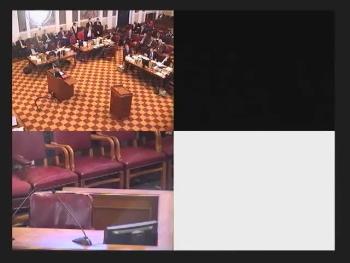Case Summary: 13-cv-04095
Plaintiffs Kansas and Arizona brought this action against Defendant United States Election Assistance Commission. Both Kansas and Arizona enacted voter registration laws requiring that any person applying to vote must provide proof of citizenship, which is not required under the Defendant’s national voter registration form. In a recent challenge to Arizona’s law, the Supreme Court of the United States held that states do not have the authority to demand identification beyond what is required by Defendant’s form, but the Court also suggested that Defendant’s refusal to change the form upon request could be subjected to judicial review under the Administrative Procedures Act.
Plaintiffs asked Defendant to add state-specific instructions to its national form reflecting the newly enacted state statutes, but Defendant responded that its staff lacked the authority to make the requested changes until the commission regained a quorum of its commissioners. This lawsuit challenges the Defendant’s deferral of the states’ requests. After the court ordered the Defendant to render a final decision, Defendant issued an opinion refusing Plaintiffs’ requests on the grounds that state election officials need only a signed oath to determine whether an applicant is a US citizen. Two weeks later, Plaintiffs filed a motion asking the court to review Defendant’s decision, order the Defendant to make the requested changes, and declare Defendant’s decision a denial of the states’ constitutional rights.
This video shows the February 11, 2014 hearing on the motion. On March 19, the court ruled that the Constitution grants states the authority to set voter qualifications, and Congress has not attempted to preempt that authority through existing statute. By refusing to change the form and therefore preventing Plaintiffs from enforcing the voter registration statutes, Defendant preempted state law without Congressional authorization. The court therefore granted Plaintiffs’ motion and ordered Defendant to add the requested state-specific instructions to the national voter registration form.
Case Highlights
- Complaint filed 8/21/2013 (Doc #1)
- Answer filed by Defendant 11/25/2013 (Doc #78)
- Motion for Judgment filed by Plaintiffs 1/31/2014 (Doc #139)
- Hearing held on motion 2/11/2014 (Doc #154)
- Order granting Plaintiffs’ motion 3/19/2014 (Doc #157)
Case-related documents, including those referenced above, are available via the Public Access to Court Electronic Records (PACER) service. For more information, visit Pacer.gov.

